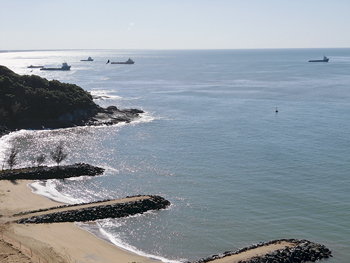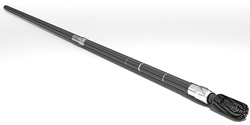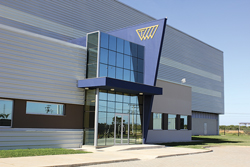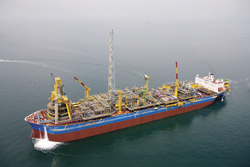JIM REDDEN, Contributing Editor

In March 2012, global travel management company Wings Travel Management, which specializes in oil and gas, corporate and marine travel, entered the Brazilian market throughout the acquisition of V7 Viagens travel-management company. “If you look at the map, Brazil is the place it is all happening,” said Wings COO Paul East. While Wings has a satellite office in Macae, the acquisition has positioned Wings to manage 24% of the crews running in Brazil currently. “The market, being so new, so vibrant, there’s so much unknown as to what is happening. The difference with Brazil being one of those emerging markets is that travel is not easy,” East said. “It’s easier to get to Rio de Janeiro than it is to get from Rio out to the rigs. The whole management becomes a completely different challenge.”
With an ongoing construction boom—including a doubling of the number of FPSOs operating offshore Brazil over the next 12 months—East predicts that managing personnel may become even more challenging over the coming years, as more people travel and more complex travel itineraries (between flights, hotels, shuttles to rigs offshore, transportation to construction sites and shipyards)occur. “When I was down there, I went to see a client, and they took me to a naval base. They actually don’t have enough dockyards—the oil and gas industry is borrowing space from the Navy to re-outfit these boats,” said East. “They’ve got work planned for the next 5-6 years, just outfitting boats.”
As the industry continues to grow, Wings knows that all aspects of travel management in the area will continue to change. “Rio de Janeiro will host the next World Cup and the Olympics. It’s a very hot market right now, and an important one to understand from a travelers’ perspective,” East said. “For me, it is most important that we know the key people, from a supplier base. So when something happens, such as when you’re trying to find hotel rooms when it’s Carnaval, we’ve got the contacts to help clients with those travel plans.”
FMC lands $1.5 billion pre-salt subsea tree agreement
FMC Technologies, Inc. has signed a four-year agreement with Petrobras for the supply of pre-salt subsea equipment. The total award will result in $1.5 billion in revenue to FMC Technologies, if all of the subsea equipment included in the agreement is ordered. The initial call-off has an approximate value of $900 million in revenue to FMC and includes 78 subsea trees. FMC's total scope of supply could include the delivery of up to 130 subsea trees, subsea multiplex controls and related tools and equipment. The tree systems are for use offshore Brazil in water depths up to 8,200 ft. The equipment will be engineered at FMC's South American Technology Center and manufactured at FMC's subsea facility, both of which are located in Rio de Janeiro, Brazil. The subsea trees will achieve 70% Brazilian local content and deliveries are scheduled to commence in 2014.
First turbine-drilled horizontal well in pre-salt carbonates

In a deepwater well drilled from a semi-submersible offshore Brazil, an operator faced the challenge of drilling a long lateral in a very tough and hard-to-drill formation of silicified carbonates, while achieving the directional plan and minimizing costs. Halliburton’s Sperry Drilling division provided two Turbopower T172 turbines fitted with 0.75° bent housing to drill the 8½-in. drain of what would be the first turbine-drilled, pre-salt horizontal well in Brazil. Although the customer previously had questioned the steerability of this kind of assembly compared to a conventional mud motor, modification proved to be unnecessary. Over the course of three runs, the turbodrills were used to drill from 17,910 ft depth to TD at 20,948 ft, a total of 3,038 ft of lateral in 395.2 drilling hours, resulting in an average rate of penetration of 7.68 ft per hour. Rate of penetration was basically unaffected by sliding mode, which was roughly half the section. The same turbine was used on the first two runs, accumulating a total of 410 operating hours, and it was the second run that achieved a new single-run footage record for all pre-salt runs to date in Brazil, drilling 2,057 ft at an ROP of 8.53 ft per hour. The lateral was directionally drilled faster than expected, with only three runs required to complete the job, and saved the operator six days of rig time.
New suction pile contract for pre-salt Santos cluster
Fluke Engenharia, an Acteon company, will fabricate 27 suction piles for use in the Guará–Lula field, which is part of the pre-salt cluster in the Santos basin, offshore Brazil, for Subsea 7. Fluke Engenharia will manufacture the products at its Macaé facilities and will deliver them over the course of 2012. This is one of the most significant non-Petrobras contracts Fluke Engenharia has won to date, and it highlights the growing demand for the company’s services from subsea contractors and international oil companies alike.
First ground support center in Brazil

Trelleborg Offshore is set to open the doors of its new facility in Brazil with the official launch confirmed for September 2012, becoming the first company in its sector to have on-the-ground support in the region. The new facility, which is located in the coastal city of Macaé, approximately 180 km north of Rio de Janeiro, will manufacture Trelleborg Offshore’s complete product portfolio, including a wide range of polymer-based solutions for offshore topside and subsea oil and gas exploration.
Electrical slip rings for FPSOs
MacArtney Underwater Technology’s FPSO Slip Ring is certified for use in hazardous locations, like those of deepwater offshore Brazil. Typically comprised of electrical slip rings, hydraulic utility swivels and fiber optic rotary joints, swivels are used in a variety of FPSO systems including buoys, turret moorings and offshore loading towers. The swivels permit the continuous delivery of electrical power and signals, hydraulic fluids, and fiber-optic signals, with unlimited freedom of the vessel to weathervane about its mooring point. The technology also allows for a wide variety of cable entry methods.
FPSO for HPHT operations

SBM Offshore’s FPSO Espirito Santo, which was refitted for operation offshore Brazil, is the very first FPSO configured to support the use of steel catenary risers (SCRs), which allow the vessel to handle high temperature, high pressure oil and gas flows at a greatly reduced cost compared to flexible or hybrid riser systems. BC-10 is a major deepwater oil development in the Campos basin, approximately 120 km offshore Brazil, which delivered first oil at the very end of 2008. The field is operated as an ‘integrated development’ – utilizing a single FPSO, Espirito Santo, to support a distributed subsea system across two primary fields. The FPSO has capacity to process 100,000 bopd, a minimum storage capacity of 1.4 mmbo. BC-10 is operated by Shell in partnership with Petrobras and ONGC Campos. SBM has a 15-year lease contract until 2021 through a joint venture with MISC – although the new FPSO has a 20-year design life. The construction phase of the project involved the refurbishment, life extension and conversion of an existing FSO, the DOMY FSO XV, for use as a double-sided FPSO. This preparatory work, which included the fabrication, installation and integration of a large internal turret and 17 topsides processing units—was executed in Singapore before the vessel was installed offshore from Brazil by the SBM Offshore Normand Installer. 
|






